- Home
- Wilkie Collins
The Two Destinies Page 52
The Two Destinies Read online
Page 52
inadmiration, high above her head. "Mamma! mamma!" the child cried,excitedly, "look at this pretty thing! Oh, do, do ask him if I may haveit!"
Her mother ran to her, eager to seize the poorest excuse for gettingaway from me. I followed; I stretched out my hands to seize her. Shesuddenly turned round on me, a woman transformed. A bright flush wason her face, an eager wonder sparkled in her eyes. Snatching Elfie'scoveted object out of the child's hand, she held it up before me. I sawit under the lamp-light. It was my little forgotten keepsake--the GreenFlag!
"How came you by this?" she asked, in breathless anticipation of myreply. Not the slightest trace was left in her face of the terror thathad convulsed it barely a minute since! "How came you by this?" sherepeated, seizing me by the arm and shaking me, in the ungovernableimpatience that possessed her.
My head turned giddy, my heart beat furiously under the conflict ofemotions that she had roused in me. My eyes were riveted on the greenflag. The words that I wanted to speak were words that refused to cometo me. I answered, mechanically: "I have had it since I was a boy."
She dropped her hold on me, and lifted her hands with a gesture ofecstatic gratitude. A lovely, angelic brightness flowed like light fromheaven over her face. For one moment she stood enraptured. The next sheclasped me passionately to her bosom, and whispered in my ear: "I amMary Dermody! I made it for You!"
The shock of discovery, following so closely on all that I had sufferedbefore it, was too much for me. I sank, fainting, in her arms.
When I came to myself I was lying on my bed in the cabin. Elfie wasplaying with the green flag, and Mary was sitting by me with my hand inhers. One long look of love passed silently from her eyes to mine--frommine to hers. In that look the kindred spirits were united; The TwoDestinies were fulfilled.
THE END OF THE STORY.
The Finale.
THE WIFE WRITES, AND CLOSES THE STORY.
THERE was a little introductory narrative prefixed to "The TwoDestinies," which you may possibly have forgotten by this time.
The narrative was written by myself--a citizen of the United States,visiting England with his wife. It described a dinner-party at which wewere present, given by Mr. and Mrs. Germaine, in celebration of theirmarriage; and it mentioned the circumstances under which we wereintrusted with the story which has just come to an end in these pages.Having read the manuscript, Mr. and Mrs. Germaine left it to us todecide whether we should continue our friendly intercourse with them ornot.
At 3 o'clock P.M. we closed the last leaf of the story. Five minuteslater I sealed it up in its cover; my wife put her bonnet on, and therewe were, bound straight for Mr. Germaine's house, when the servantbrought a letter into the room, addressed to my wife.
She opened it, looked at the signature, and discovered that it was "MaryGermaine." Seeing this, we sat down side by side to read the letterbefore we did anything else.
On reflection, it strikes me that you may do well to read it, too. Mrs.Germaine is surely by this time a person in whom you feel some interest.And she is on that account, as I think, the fittest person to close thestory. Here is her letter:
"DEAR MADAM (or may I say--'dear friend'?)--Be prepared, if you please,for a little surprise. When you read these lines we shall have leftLondon for the Continent.
"After you went away last night, my husband decided on taking thisjourney. Seeing how keenly he felt the insult offered to me by theladies whom we had asked to our table, I willingly prepared for oursudden departure. When Mr. Germaine is far away from his false friends,my experience of him tells me that he will recover his tranquillity.That is enough for me.
"My little daughter goes with us, of course. Early this morning I droveto the school in the suburbs at which she is being educated, and tookher away with me. It is needless to say that she was delighted at theprospect of traveling. She shocked the schoolmistress by waving her hatover her head and crying 'Hooray,' like a boy. The good lady was verycareful to inform me that my daughter could not possibly have learned tocry 'Hooray' in _her_ house.
"You have probably by this time read the narrative which I havecommitted to your care. I hardly dare ask how I stand in your estimationnow. Is it possible that I might have seen you and your good husband ifwe had not left London so suddenly? As things are, I must now tell youin writing what I should infinitely have preferred saying to you withyour friendly hand in mine.
"Your knowledge of the world has no doubt already attributed the absenceof the ladies at our dinner-table to some report affecting my character.You are quite right. While I was taking Elfie away from her school, myhusband called on one of his friends who dined with us (Mr. Waring), andinsisted on an explanation. Mr. Waring referred him to the woman whois known to you by this time as Mr. Van Brandt's lawful wife. In herintervals of sobriety she possesses some musical talent; Mrs. Waring hadmet with her at a concert for a charity, and had been interested inthe story of her wrongs, as she called them. My name was, of course,mentioned. I was described as a 'cast-off mistress' of Van Brandt, whohad persuaded Mr. Germaine into disgracing himself by marrying her,and becoming the step-father of her child. Mrs. Waring thereuponcommunicated what she had heard to other ladies who were her friends.The result you saw for yourselves when you dined at our house.
"I inform you of what has happened without making any comment. Mr.Germaine's narrative has already told you that I foresaw the deplorableconsequences which might follow our marriage, and that I over and overagain (God knows at what cost of misery to myself) refused to be hiswife. It was only when my poor little green flag had revealed us to eachother that I lost all control over myself. The old time on the banks ofthe lake came back to me; my heart hungered for its darling of happierdays; and I said Yes, when (as you may think) I ought to have still saidNo. Will you take poor old Dame Dermody's view of it, and believe thatthe kindred spirits, once reunited, could be parted no more? Or will youtake my view, which is simpler still? I do love him so dearly, and he isso fond of me!
"In the meantime, our departure from England seems to be the wisestcourse that we can adopt. As long as this woman lives she will say againof me what she has said already, whenever she can find the opportunity.My child might hear the reports about her mother, and might be injuredby them when she gets older. We propose to take up our abode, for a timeat least, in the neighborhood of Naples. Here, or further away yet, wemay hope to live without annoyance among a people whose social lawis the law of mercy. Whatever may happen, we have always one lastconsolation to sustain us--we have love.
"You talked of traveling on the Continent when you dined with us. If youshould wander our way, the English consul at Naples is a friend of myhusband's, and he will have our address. I wonder whether we shall evermeet again? It does seem hard to charge the misfortunes of my life onme, as if they were my faults.
"Speaking of my misfortunes, I may say, before I close this letter, thatthe man to whom I owe them is never likely to cross my path again. TheVan Brandts of Amsterdam have received certain information that he isnow on his way to New Zealand. They are determined to prosecute him ifhe returns. He is little likely to give them the opportunity.
"The traveling-carriage is at the door: I must say good-by. My husbandsends to you both his kindest regards and best wishes. His manuscriptwill be quite safe (when you leave London) if you send it to hisbankers, at the address inclosed. Think of me sometimes--and think of mekindly. I appeal confidently to _your_ kindness, for I don't forget thatyou kissed me at parting. Your grateful friend (if you will let her beyour friend),
"MARY GERMAINE."
We are rather impulsive people in the United States, and we decide onlong journeys by sea or land without making the slightest fuss aboutit. My wife and I looked at each other when we had read Mrs. Germaine'sletter.
"London is dull," I remarked, and waited to see what came of it.
My wife read my remark the right way directly.
"Suppose we try Naples?" she said.
That is all. Permit us to wish you good-by. We are off to Naples.

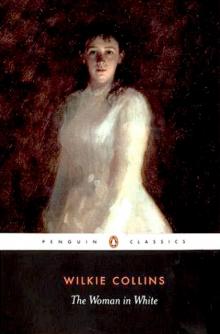 The Woman in White
The Woman in White The Queen of Hearts
The Queen of Hearts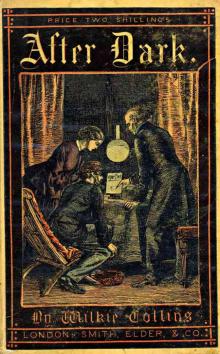 Miss Jeromette and the Clergyman
Miss Jeromette and the Clergyman Man and Wife
Man and Wife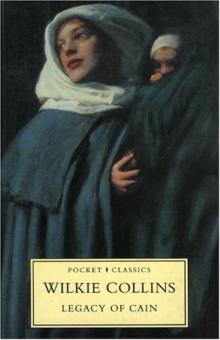 The Legacy of Cain
The Legacy of Cain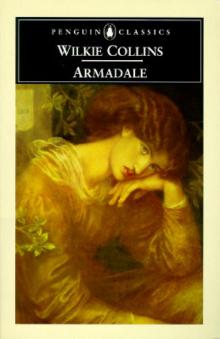 Armadale
Armadale The Frozen Deep
The Frozen Deep John Jago's Ghost or the Dead Alive
John Jago's Ghost or the Dead Alive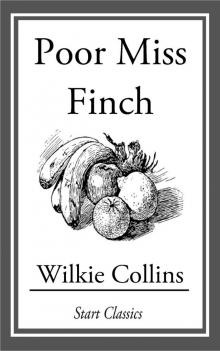 Poor Miss Finch
Poor Miss Finch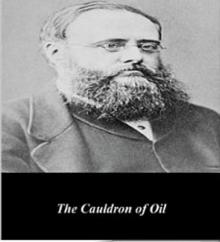 The Cauldron of Oil: A Case Worth Looking At
The Cauldron of Oil: A Case Worth Looking At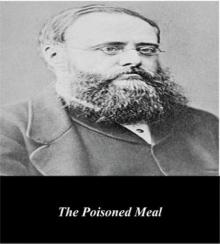 The Poisoned Meal
The Poisoned Meal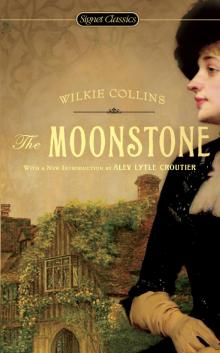 The Moonstone
The Moonstone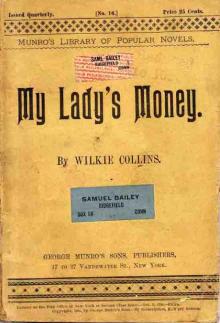 My Lady's Money
My Lady's Money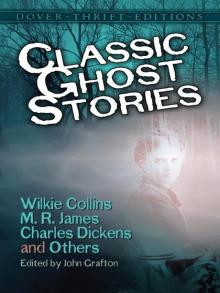 Classic Ghost Stories
Classic Ghost Stories Jezebel's Daughter
Jezebel's Daughter The Devil's Spectacles
The Devil's Spectacles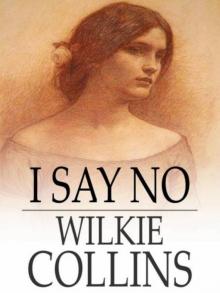 I Say No
I Say No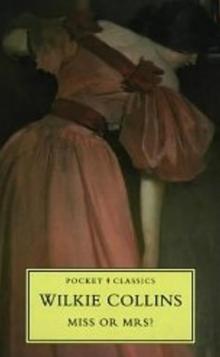 Miss or Mrs.?
Miss or Mrs.?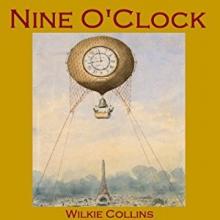 Nine O'Clock
Nine O'Clock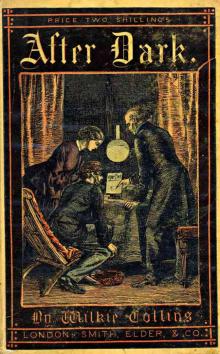 The Lawyer's Story of a Stolen Letter
The Lawyer's Story of a Stolen Letter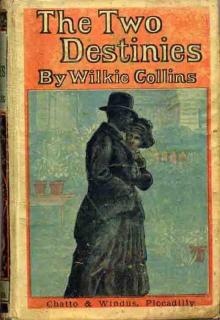 The Two Destinies
The Two Destinies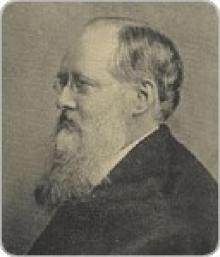 Mr. Percy and the Prophet
Mr. Percy and the Prophet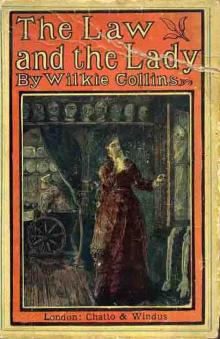 The Law and the Lady
The Law and the Lady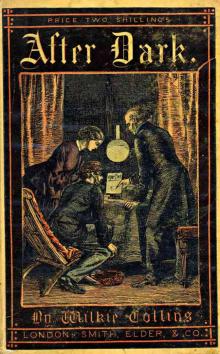 The Nun's Story of Gabriel's Marriage
The Nun's Story of Gabriel's Marriage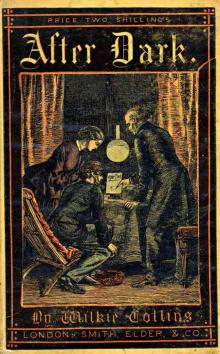 After Dark
After Dark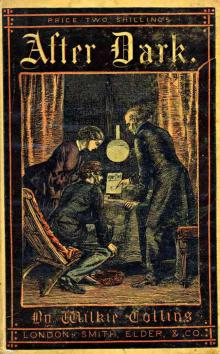 Mr. Captain and the Nymph
Mr. Captain and the Nymph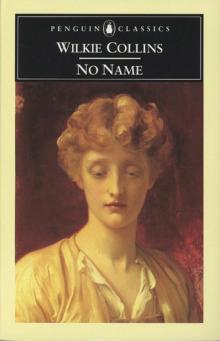 No Name
No Name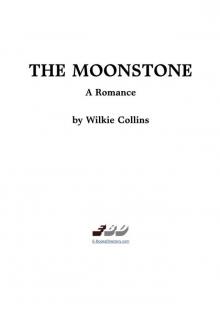 The Moonstone (Penguin Classics)
The Moonstone (Penguin Classics) Antonina
Antonina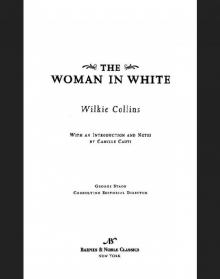 Woman in White (Barnes & Noble Classics Series)
Woman in White (Barnes & Noble Classics Series)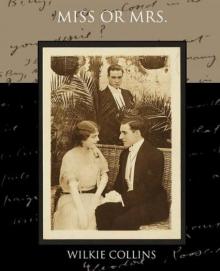 Miss or Mrs
Miss or Mrs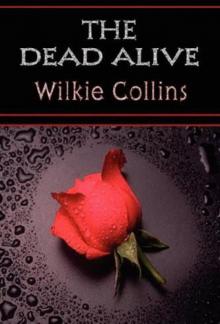 The Dead Alive
The Dead Alive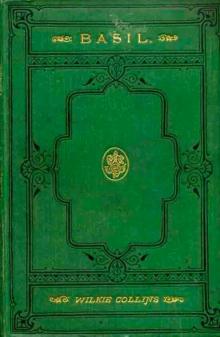 Basil
Basil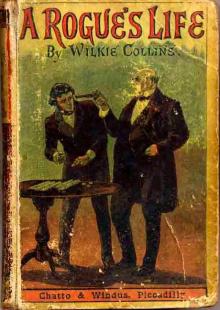 A Rogue's Life
A Rogue's Life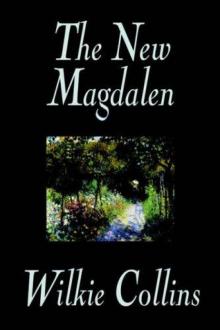 The New Magdalen
The New Magdalen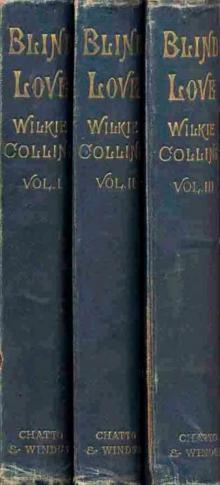 Blind Love
Blind Love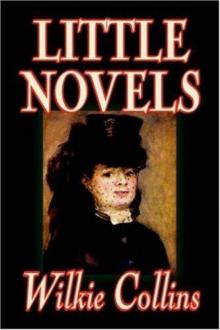 Little Novels
Little Novels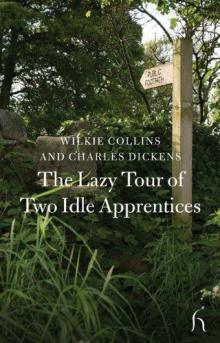 The Lazy Tour of Two Idle Apprentices
The Lazy Tour of Two Idle Apprentices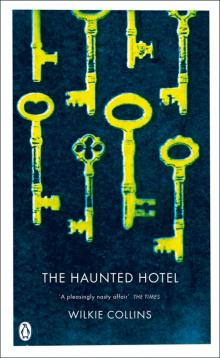 The Haunted Hotel
The Haunted Hotel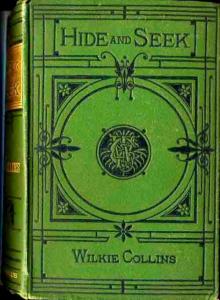 Hide and Seek
Hide and Seek